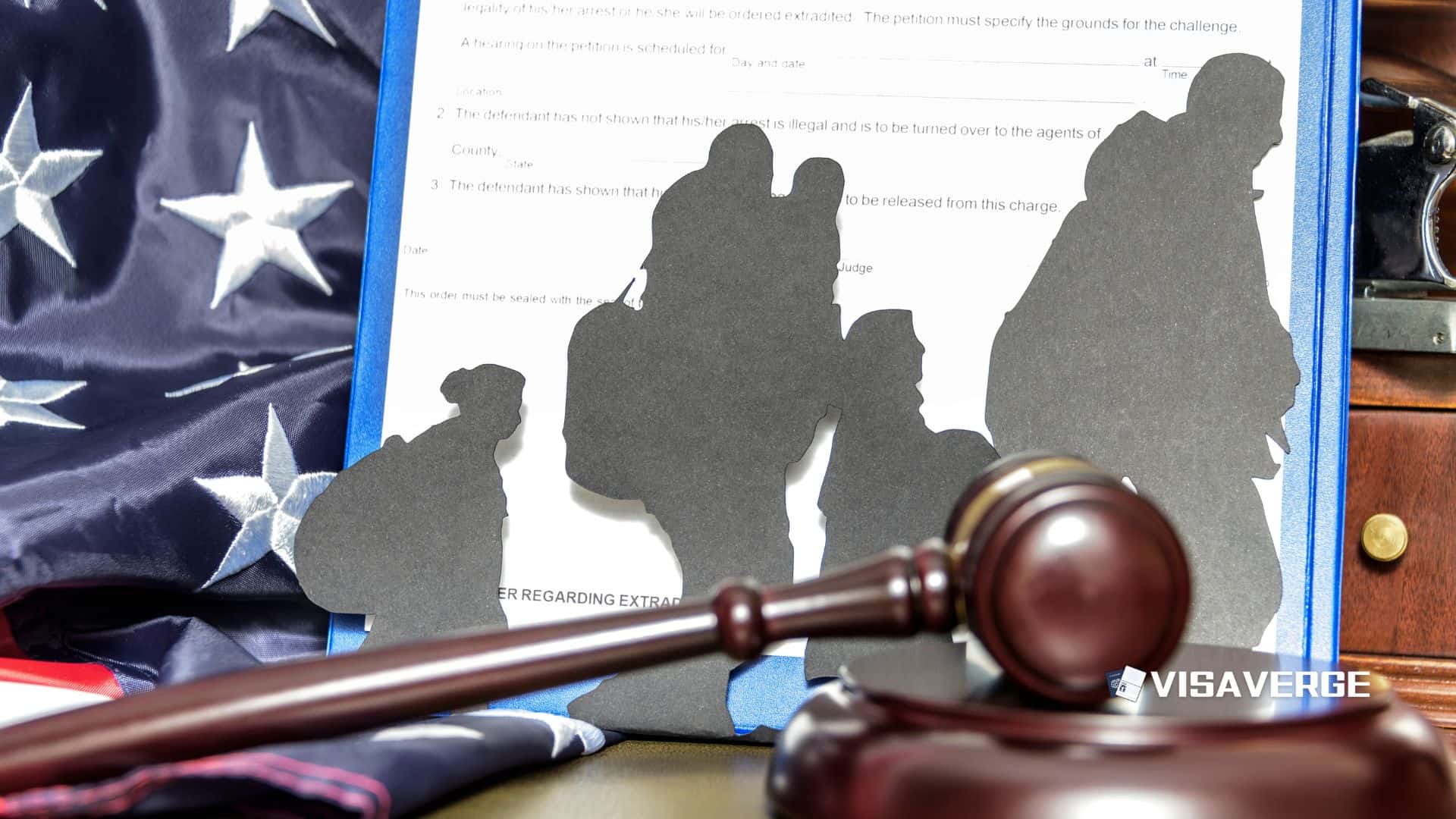Key Takeaways
• SB 17 bans property purchases by citizens, businesses, and governments from China, Iran, North Korea, and Russia in Texas.
• Legal visa holders, like international students and workers, are exempt from purchase restrictions under proposed amendments.
• The bill awaits Texas Senate and Governor Abbott’s approval and could take effect September 1, 2025, if enacted.
On May 9, 2025, the Texas House took a major step toward changing who can buy property in Texas. Lawmakers approved Senate Bill 17 (known as SB 17). This bill would ban citizens, businesses, and government organizations from China 🇨🇳, Iran 🇮🇷, North Korea 🇰🇵, and Russia 🇷🇺 from owning property in the state. If it becomes law, Texas will join other parts of the United States 🇺🇸 that have started to limit land purchases from certain foreign nationals and companies. But as of now, it is not yet a law. SB 17 still needs to pass several steps before being fully enforced.
What Does Senate Bill 17 Propose?

SB 17, often called the Texas bill, sets out clear rules about who can buy Texas property. At its core, the bill says people or groups from countries seen as security threats by the U.S. Director of National Intelligence cannot buy land or property in Texas. The four countries named in the bill are China, Iran, North Korea, and Russia.
This ban would affect not only individuals but also businesses and government groups from those four countries. If someone or a company from those nations is found to own land, the Texas Attorney General can look into it. If it looks like the rules have been broken, Texas could go to court to ask for the property to be taken away.
The bill also contains details about how it would work. For example, leases, which are long-term agreements to use a property without owning it, would be limited. Under the House version of the bill, people from these countries can’t lease property for more than one year. The Senate had originally suggested leases could last up to 100 years, but the House made this rule much stricter.
There’s also an important change that protects people who are legally living in the United States 🇺🇸 with valid visas. This amendment ensures that legal residents, like international students or workers here on the proper paperwork, would still be allowed to purchase property in Texas.
In another large amendment, the bill gives the governor extra power to add more countries or even criminal groups to the list. This means the list of banned countries could grow. For instance, a Venezuelan gang called Tren de Aragua was named as an example of a group that could be included in the future.
Why Was Senate Bill 17 Introduced?
Supporters of the Texas bill say it is meant to protect Texas. They want to stop what they see as risky foreign influence over land and resources that could be important for safety or money reasons. Representative Cole Hefner, one of the main supporters, explained that this is needed to keep “oppressive regimes” from buying up parts of Texas. The thinking is that certain governments, which the United States 🇺🇸 considers security threats, should not be able to get control of land that might matter for defense, food, energy, or other key issues.
This is part of a bigger wave across the country. In recent years, several states have suggested or passed laws to block or limit foreign buyers from owning land, especially when those buyers are from countries that the American government sees as potential threats. Supporters believe these rules are normal matters of safety and protecting state interests.
Where Does the Bill Stand Now?
Although the Texas House approved SB 17 in an 85-60 party-line vote, the bill is not yet law. The Senate must look at the changes made by the House. If the Senate agrees, the bill then moves to Governor Greg Abbott. Only after the governor signs the bill would it become law.
If signed, the plan is for the new rules to start on September 1, 2025. Until then, the old property ownership laws will stay in place.
Who Would Be Affected By SB 17?
The biggest impact of Senate Bill 17 would be felt by people and companies from China 🇨🇳, Iran 🇮🇷, North Korea 🇰🇵, and Russia 🇷🇺 who want to buy homes, land, or other types of property in Texas. Many of these buyers are not trying to cause problems; they may want to live, farm, or do business in Texas just like anyone else.
However, the bill was written carefully to not affect everyone from those countries. Because of strong pushback, lawmakers added an extra rule to protect legal residents. This means anyone who legally lives in the country and has a visa, such as students or workers, can still buy property.
The Texas Attorney General would be in charge of making sure the rules are followed. The office could look into property sales that seem to break the new law. If needed, they could go to a judge to try to take away the property if it was bought illegally.
The bill also leaves room for more changes down the line. The governor could name other countries or even large criminal groups as being banned, if they are seen as a threat.
Why Is the Bill So Controversial?
SB 17 has led to heated arguments, both within Texas and across the country. The main debate is about whether the bill protects people or wrongly targets certain groups. Democratic lawmakers, including Representative Gene Wu, have sounded the alarm, saying the law could lead to unfair treatment.
Wu shared strong worries that the Texas bill could lead to more hate or racism against Asian Americans. He said that hate crimes usually rise when the government singles out a group, and many people in the United States 🇺🇸 do not always know the difference between people from different Asian nations.
Civil rights groups, such as Asian Texans for Justice, have also spoken out. They pointed out that similar rules from the past unfairly hurt people from Asia. In the early 1900s, some state laws stopped Asian immigrants from owning property. Many people today see those old laws as deeply unfair and racist, and worry that SB 17 echoes this history.
Legal experts are watching closely, too. Earlier in 2023, a similar law in Florida was blocked—at least temporarily—by a federal appeals court. That means, even if the Texas bill becomes law, people are likely to take the state to court to try to stop it from being enforced. The main questions likely to come up in court are about whether this Texas bill is allowed under the U.S. Constitution and whether it is fair.
What Changes Did the Texas House Make?
The House made several important changes before passing SB 17. These changes shape how the bill would work in real life:
- Governor’s Power Expanded: The governor could add more countries or large criminal organizations to the list of restricted buyers. This gives a lot of control to one person, and the future list could become longer, depending on world events.
- Leasing Tightened: The House lowered the time limit for leases to just one year. This might make short-term rentals possible, but would end the very long-term leases that sometimes act like ownership.
- Visa Holders Protected: A key change is an exemption for people who are legally in the United States 🇺🇸. They can still buy land or homes if they have the right papers, which was added to quiet some of the strongest objections from people worried about fairness.
- Transnational Criminal Groups: The House allowed the ban to stretch beyond countries. For example, the mention of the Venezuelan gang, Tren de Aragua, shows how the law could be used against groups that operate across borders.
These changes were meant to balance the state’s wish to stay secure with the rights of individual people, especially people who have come to Texas for school or work.
How Could SB 17 Affect Texas?
SB 17 could change how many people look at Texas as a place to invest, live, or study. For foreign nationals from the named countries, buying land or a home could become much harder or impossible. Some might think twice before doing business in Texas if they feel unwelcome or excluded by these new rules.
The bill also puts more pressure on real estate agents, lawyers, and others involved in property sales. They will have to check carefully where buyers come from and what their legal status is before helping with property sales.
There is also a bigger picture to consider. Texas is known worldwide as a big and open state. If this new Texas bill becomes law, some people may see Texas as less friendly or less fair to people from certain countries. This could affect how Texas is seen in the United States 🇺🇸 and around the world.
At the same time, there are many people in the state and across the country who believe strongly in protecting local resources and keeping certain key assets owned by Americans. They support tighter rules, especially when it comes to who owns land that could be important for security or the economy.
What Are Possible Legal Challenges Ahead?
Given the current situation in Florida, where a similar law was put on hold by a court, Texas is almost certain to face big legal fights if SB 17 becomes law. Civil rights groups may argue the bill breaks federal law or is against the Constitution. They may say that even though the Texas bill is aimed at foreign countries, its effects could reach legal residents and citizens, especially those who look a certain way or have an accent.
On the other side, supporters of the Texas bill argue that states have a right to set their own property laws. They point out that the listed countries have sometimes been caught spying or working against the interests of the United States 🇺🇸 in the past.
As reported by VisaVerge.com, states across the country are watching to see what happens next in Texas. If SB 17 goes forward, other states might follow. But if courts decide it is not allowed, that could put a stop to these types of new property laws.
Where Can You Learn More About the Bill and Your Rights?
If you are from one of the countries named in Senate Bill 17, or if you are a legal resident in the United States 🇺🇸 with plans to buy property in Texas, it is important to stay informed. The Texas Legislature offers up-to-date details on the bill’s progress, including any chances for public input and the final text. You can find official updates and the full bill text by visiting the Texas Legislature Online official website.
Real estate professionals and legal experts are also keeping a close watch and may be able to answer individual questions as the bill moves forward.
Summary and Next Steps
SB 17, the Texas bill focused on property ownership, would put strong new limits on who can buy, sell, or lease land in Texas. It is part of a national trend of states looking harder at foreign investment, especially from countries the United States 🇺🇸 sees as national security risks. Right now, the bill has passed a major hurdle but is not law. The Texas Senate and Governor Abbott still need to approve it before it takes effect.
If it becomes law, it will likely change the landscape for buyers from China 🇨🇳, Iran 🇮🇷, North Korea 🇰🇵, and Russia 🇷🇺. Legal residents with valid visas would still be able to buy property, but people and businesses from the named countries would face strong limits. Businesses and even criminal groups could be added to the list if the governor chooses.
Many people will be watching closely in Texas, across the country, and in courtrooms to see what comes next. This Texas bill will surely shape state and even national debates about security, fairness, and who gets to call Texas home.
Learn Today
Senate Bill 17 (SB 17) → A proposed Texas law restricting property ownership by people and organizations from certain foreign countries considered security threats.
Legal visa holder → A person who lives in the United States with government authorization via a valid visa such as student or work visa.
Confiscation → The legal process by which authorities seize property due to violation of the law.
Transnational criminal group → An organized crime group that operates in multiple countries and may be banned from buying property under SB 17.
Attorney General → The chief legal officer of Texas responsible for investigating and enforcing state laws, including property ownership rules.
This Article in a Nutshell
Senate Bill 17, recently approved by the Texas House, would restrict property ownership for citizens and entities from China, Iran, North Korea, and Russia. If enacted, visa holders remain protected. The law aims to address security concerns but faces ongoing controversy. Final approval by the Senate and governor is still pending.
— By VisaVerge.com
Read more:
• US citizens can buy property in Italy without residency
• Selling US property before moving to France may affect French tax
• US citizens can buy property in Italy without residency
• Selling your US property before moving to France: Capital gains tax tips
• Your Complete Guide to Dubai’s Property Owner Visa Requirements













